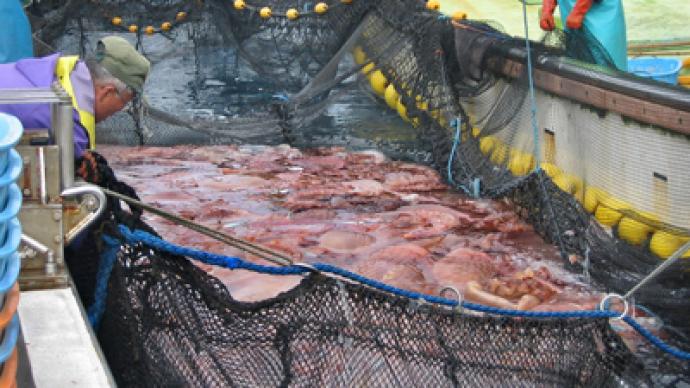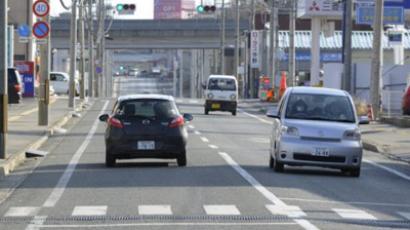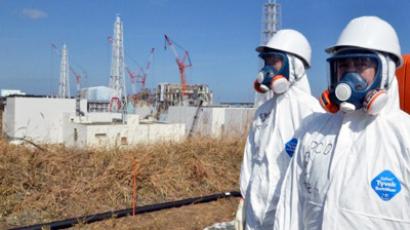Fishy help? Controversy over Japan food aid from tainted areas

A year on from Fukushima, Japan is struggling to convince consumers that fish from contaminated areas is safe. With new limits imposed on radioactive substances in food, the government is sending canned fish to developing countries to feed children.
A year on from Fukushima, Japan is struggling to convince consumers that fish from contaminated areas is safe. With new limits imposed on radioactive substances in food, the government is sending canned fish to developing countries to feed children.As of April 1, 2012, the ceiling on radioactive Cesium in food has been lowered from 500 becquerels per kilogram to 100. With stricter regulations in place, authorities in the Tohoku and Kanto regions said Friday they are ready to increase the number of food tests to win the trust of consumers.The food aid program will be carried out jointly by the Japanese government and the UN's World Food Programme (WFP), reports Sankei Shibun news website. Last week, the Japanese government exchanged letters with WFP so that processed marine products made in the areas affected by the March 11, 2011 earthquake and tsunami could be used as food aid for people in developing countries. The program is specifically designed for fisheries from the disaster-affected areas, so that they could eliminate "reputational damage" caused by consumer fears.According to Sankei Shibun, canned fish from Tohoku region will be shipped to five developing countries and used to feed schoolchildren. Five recipient countries are discussed, however, the only one named is Cambodia. One billion yen’s (that’s just over 12 million dollars’) worth of canned sardines and mackerel will be purchased by WPF from factories in Aomori, Iwate, Ibaraki, and Chiba Prefectures. The money was allocated to WPF in 2011 by Japanese government. Parliamentary Secretary for Foreign Affairs Toshiyuki Kato in the ceremony of exchanging letters said that "fish processing companies in the disaster area were severely damaged, however, they are making an effort towards resuming full operation".Not everyone supports the initiative. Several citizens' groups have opposed the move, saying that they do not trust the safety of food that comes from disaster-affected areas. Top officials at the Ministry of Foreign Affairs brushed off the doubts, saying all necessary radiation tests will be taken and only those products that do no raise any concerns will be exported.














